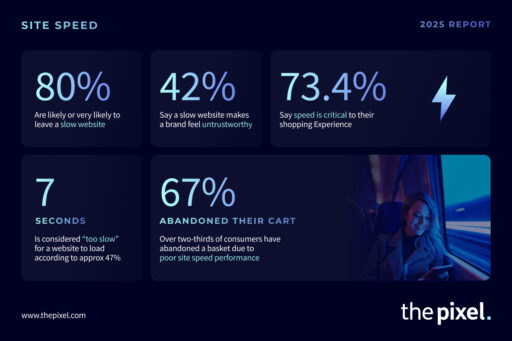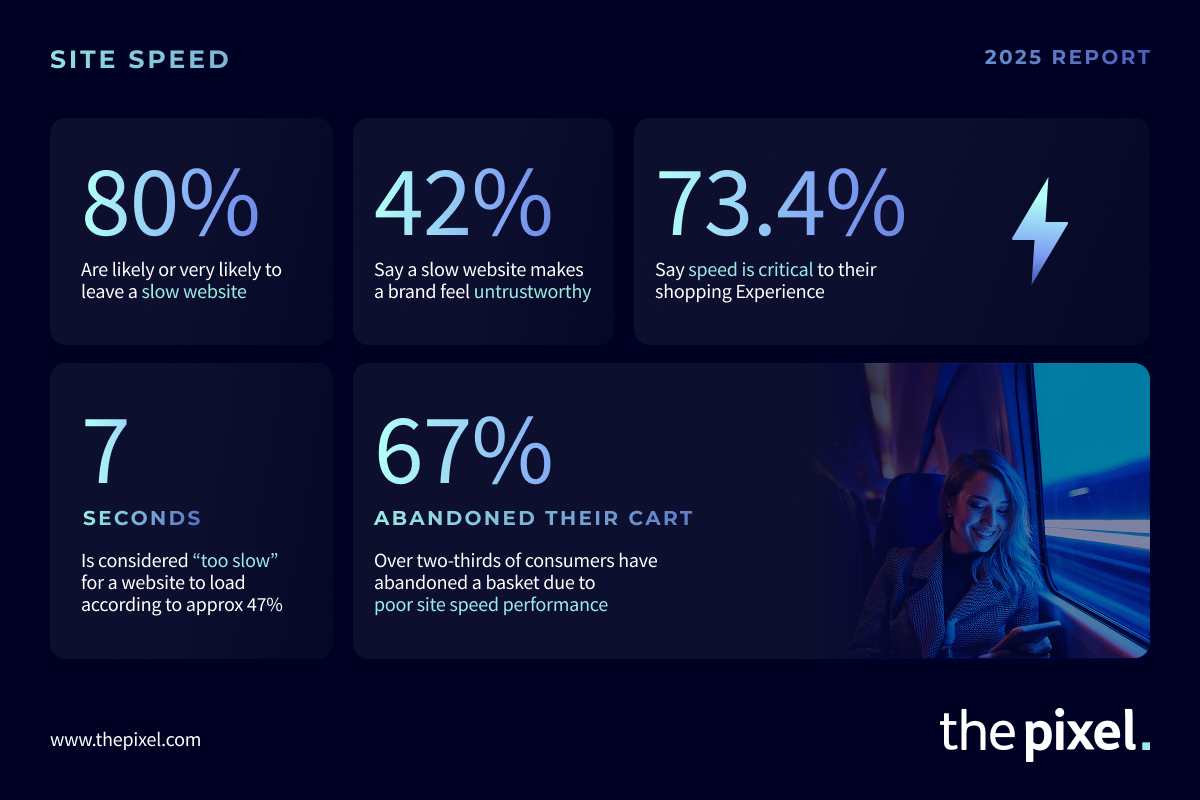A nationwide study by The Pixel, involving 1,000 online shoppers across the UK, has uncovered the leading elements influencing user trust, satisfaction, and brand loyalty in digital retail environments.
“This survey details how digital expectations have shifted, today’s consumers equate performance with trust. Slow load times, unclear privacy practices or weak security are no longer just technical issues; they’re deal-breakers,” said Aynsley Peet, Head of Growth at The Pixel.
“Retailers must prioritise speed, personalisation, transparency and security if they want to earn and retain customer loyalty in an increasingly competitive online space.”
Among the key findings, the majority of respondents expressed frustration with sluggish websites. Over 80% stated they are either likely or very likely to exit a site that takes too long to load, with nearly half (47%) identifying seven seconds as the longest acceptable wait time. Furthermore, 73.4% said page speed significantly impacts their online shopping decisions.
Page load speed has evolved beyond a technical metric—it now signals credibility. According to the survey, 42% of users view slow websites as untrustworthy, while 67% confirmed they had abandoned an online basket within the past year due to underwhelming performance.
Aynsley Peet added: “Improving site speed isn’t just a technical upgrade, it’s a trust-building, revenue-driving strategy.”
The survey also highlighted consumers’ increasing preference for personalisation in the online shopping journey. Over 44% rated tailored experiences as very or extremely important, while 71.6% said they are more inclined to become repeat customers when brands offer loyalty rewards.







